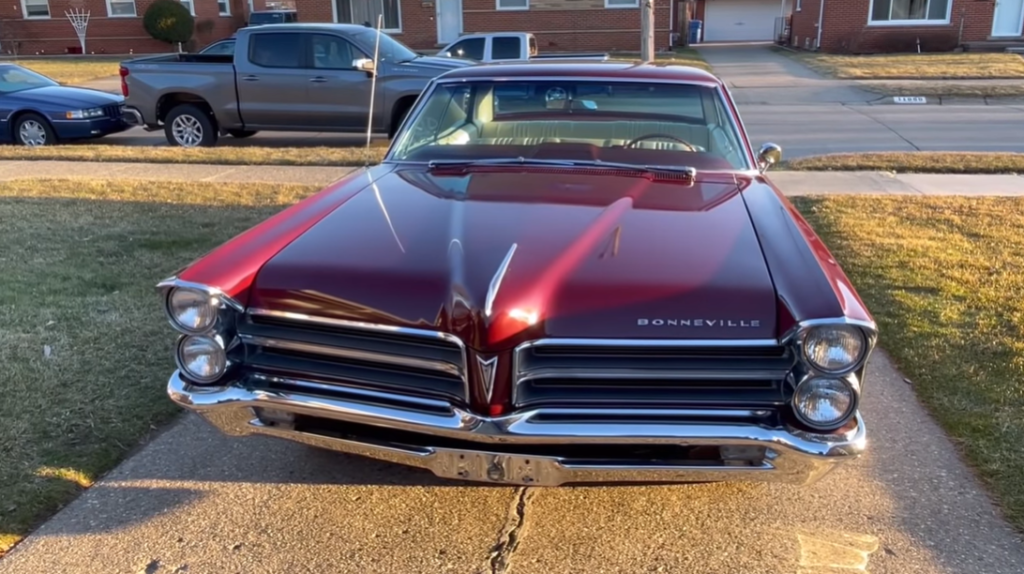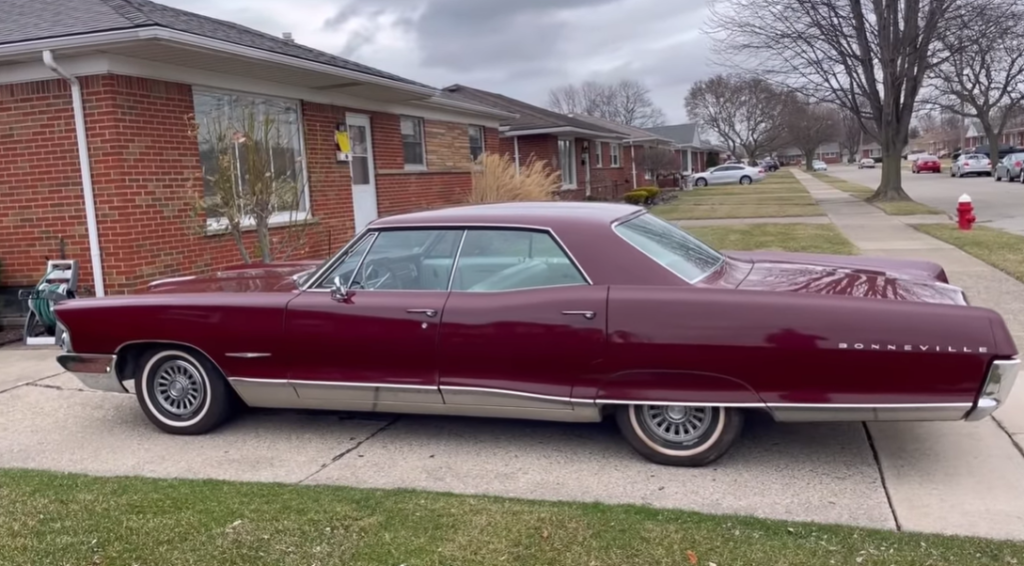The Perfect Family Hauler: 1965 Pontiac Bonneville/Catalina 421 V8 – Overview, Design, Ride & Drive

The 1965 Pontiac Bonneville/Catalina 421 V8 is a classic car that has captured the hearts of many car enthusiasts. This vehicle was designed to be the perfect family hauler, providing ample space and a comfortable ride while still being powerful enough to handle any situation. In this article, we’ll take a closer look at the design, ride, and drive of this iconic vehicle.
The 1965 Pontiac Bonneville/Catalina 421 V8 was a full-size car that was built by General Motors. It was introduced in 1959 as a luxury car, and over the years, it evolved into a popular family car. The 1965 model was the first to feature a redesigned body and new interior, making it a standout among its predecessors.

The design of the 1965 Pontiac Bonneville/Catalina 421 V8 was a mix of classic styling and modern design. The car’s body was streamlined and sleek, with a low roofline and sweeping curves. The front grille was a standout feature, with a split design that was both stylish and functional. The car’s rear end featured a unique taillight design that added to its overall appeal.
The interior of the 1965 Pontiac Bonneville/Catalina 421 V8 was spacious and comfortable. The car had a bench seat in the front and back, allowing for plenty of seating space for the whole family. The dashboard was designed to be simple and functional, with all the necessary gauges and controls within easy reach.

The ride and drive of the 1965 Pontiac Bonneville/Catalina 421 V8 were exceptional. The car was powered by a 421 cubic inch V8 engine that produced 338 horsepower and 468 lb-ft of torque. This engine was mated to a three-speed automatic transmission that provided smooth and effortless shifting.
The car’s suspension was designed to provide a smooth ride, even on rough roads. The front suspension featured coil springs and an anti-roll bar, while the rear suspension had leaf springs and a solid axle. The car’s power steering and power brakes made driving and stopping effortless.
Watch and enjoy the video below explained in details: